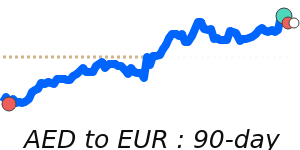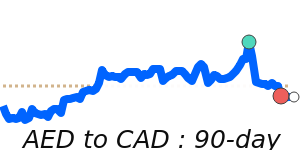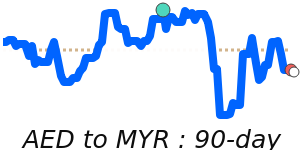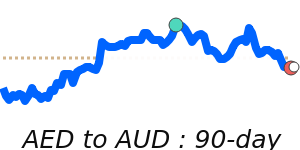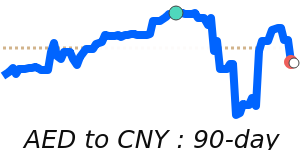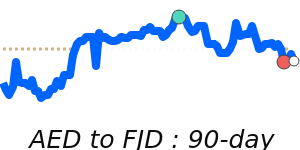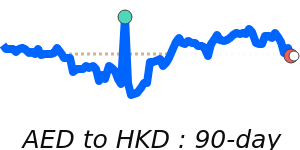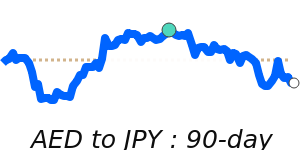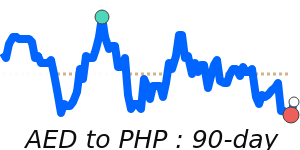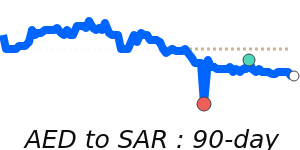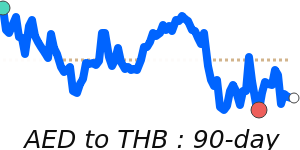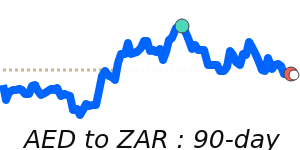Outlook
The UAE Dirham is expected to stay broadly stable near current levels, underpinned by the USD peg at 3.6725 and policy alignment with the US Federal Reserve. In the near term, stability will persist unless oil-price swings or shifts in USD strength and global risk sentiment prompt a rethink of UAE liquidity conditions.
Key drivers
- Fixed Exchange Rate Peg: The Dirham remains anchored to the US dollar at 3.6725 AED per 1 USD, supporting stability in the currency’s value.
- Oil revenue impact: Global oil price movements affect UAE foreign reserves, which are crucial for defending the peg.
- Monetary policy alignment: UAE Central Bank adjusts policy in line with the Federal Reserve to preserve the peg, influencing domestic liquidity and investment flows.
- Economic diversification: Growth in tourism, real estate, and finance attracts foreign investment, bolstering the Dirham’s strength.
- Geopolitical stability: The UAE’s political and economic stability enhances investor confidence and supports the Dirham’s value.
- Currency symbol introduction: A new Dirham symbol was unveiled in March 2025, reflecting broader recognition of the currency on the global stage.
- Remittance advantages: Some Asian currencies have depreciated against the Dirham, increasing the value of remittances sent from the UAE and benefiting expatriates.
Range
AED/USD is steady at 0.2723 USD per AED, at the 3-month average. AED/EUR at 0.2294 is 1.3% below its 3-month average of 0.2324, having traded in a stable 0.2263–0.2365 range. AED/GBP at 0.1994 is 1.6% below its 3-month average of 0.2027, within a 0.1968–0.2086 range. AED/JPY at 41.57 is 2.2% below its 3-month average of 42.51, trading in a 41.47–43.32 range and marking 14-day lows.
What could change it
- Oil price volatility and UAE reserve dynamics affecting peg defense.
- Shifts in US Federal Reserve policy or USD strength influencing domestic liquidity.
- Changes in UAE monetary policy stance or liquidity management.
- Flows from remittances as Asian currencies move, altering demand for Dirham.
- Geopolitical developments impacting risk appetite and capital flows.
- Any unexpected adjustments to the peg framework or broad market liquidity conditions.





